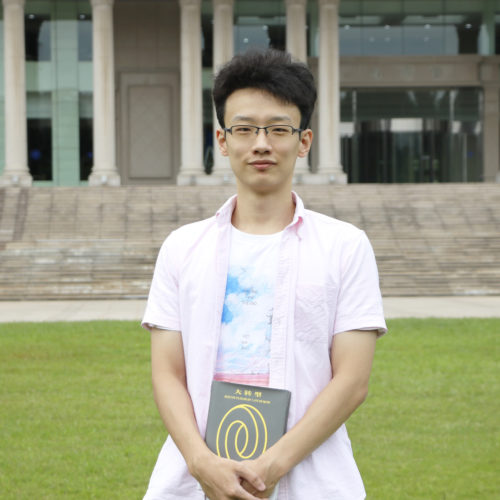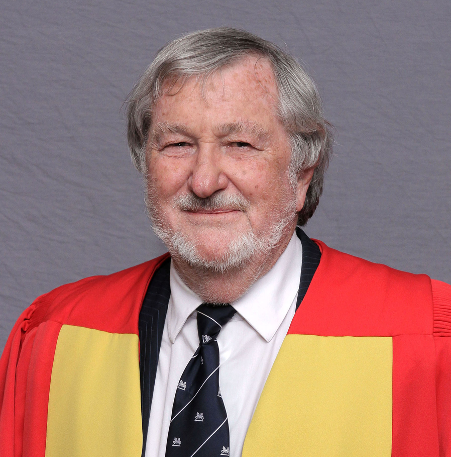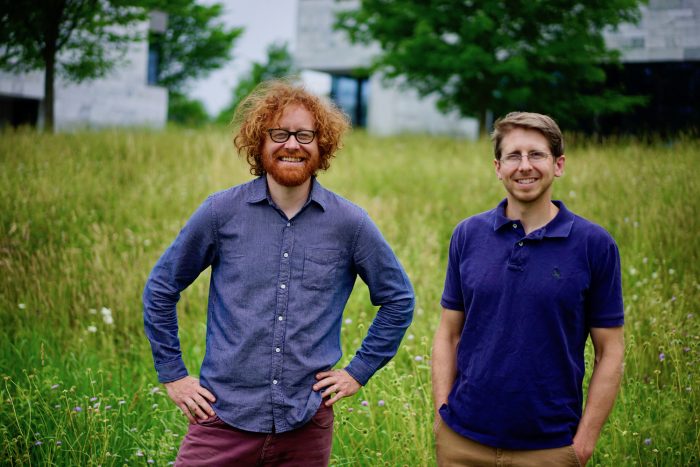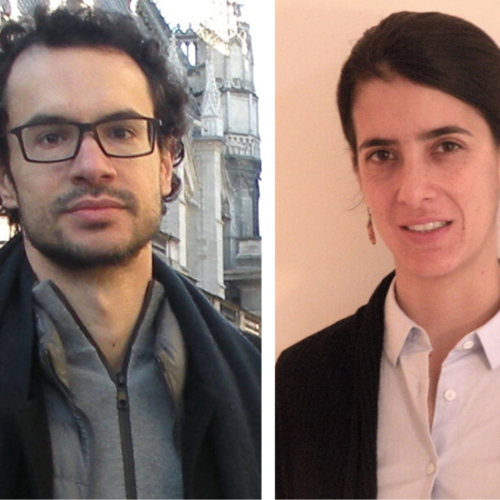Polanyi all over the World
Polanyi in Australia
In the second part of our series 'Polanyi all over the world', Alan Scott and Claire Baker talk about the importance of Polanyi's work in Australia. Claire Baker is a Lecturer in Sociology, Alan Scott is professor of sociology, both at University of New England (Armidale, Australia).
'Polanyi all over the world' is a column initiated by the IKPS which aims at strengthening our ties with other Polanyi-related institutes, communities and organizations around the globe.
25th of April, 2020
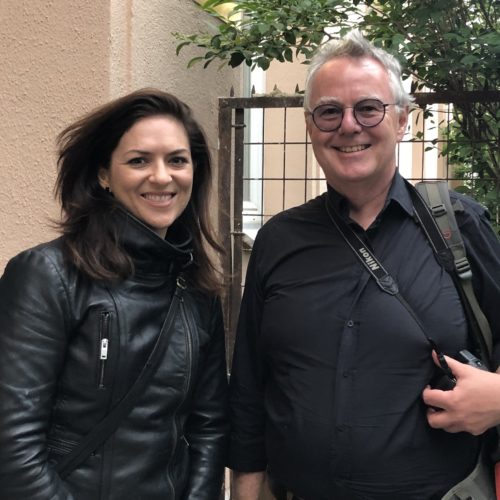
The authors outside Vorgartenstrasse 203, Vienna. Photo by Jamie Peck
In the Sherlock Holmes mystery Silver Blaze, Holmes refers to the “curious incident of the dog in the night-time”. The curious incident was that the dog did not bark. The tale of Polanyi in Australia is largely one of the dog that did not bark in the night. Australian social science – including, or particularly, its left variant – has oriented itself towards European rather than US social thought. But Polanyi has been largely absent. When Australian social theory took its post-Marxist turn, it was towards Foucault and Central and Eastern European thinkers, notably Ágnes Heller and Zygmunt Bauman. One possible exception may have been at Monash where Boris Frankel had been teaching Polanyi in the 1970s (our thanks to Peter Beilharz (La Trobe) for this information).
The reasons were partly contingent. The influential sociologist, Barry Hindess, moved from the University of Liverpool (UK) to ANU and a strong school of Australian Foucauldians emerged, gaining international attention. Between 1978 and 1986, Ágnes Heller (along with her husband, the philosopher Ferenc Fehér) lived in Melbourne and worked at La Trobe University. Via Thesis Eleven – the respected Melbourne-based theory journal – the ideas of the Budapest School, and European dissident thought more generally, entered Australian intellectual debate. But still no Polanyi (Thesis Eleven did carry a brief review symposium on his work in 2014 (no. 125)).
Nevertheless, in a nation in which agriculture and the mining of raw materials are so central to the economy, there is no shortage of material waiting for Polanyian analysis. And it is thus – as they say – no coincidence that some home-grown analysis has affinities with Polanyi’s arguments, even though explicit reference is largely absent. Here the work of Michael Pusey is of particular relevance. His 1991 book Economic Rationalism in Canberra questioned the primacy of economic thinking and management within the state and how this increasingly discounted the needs of society. Pusey’s work – which is regaining attention – may act as a bridge to a more explicitly Polanyian analysis of Australia in a context in which nation-building state policies have increasingly been replaced by familiar neoliberal nostrums and an opening to the world market in the case of agriculture (which has always been the case with mining – for an interesting Polanyian examination of an Australian mining economy, see Peck 2013a and 2013b). What is interesting about the case of agriculture is that the socially painful restructuring of the sector through the 1990’s, framed as a ‘necessary’ move to efficiency and productivity, has now led to a recognition of the ways in which this approach has had a devastating effect on both land and labour and provides a fascinating case study for Polanyian analysis (for a deeper historical view, see Baker, forthcoming).
As an example of actual policy discourse, a significant policy paper was released in 2018 that provides an indication of the turning point that may bring Australia into a Polanyian ‘double movement’. Released by the peak national agriculture industry body the National Farmers’ Federation (NFF), the report draws upon the results of an extensive consultation process with approximately 380 industry, community and government representatives. Historically the NFF has been supportive of increasingly neoliberal policy positions, advocating for a reduction in state intervention in markets and championing deregulation of the sector in favour of productivity and efficiency gains. This report is significant because it provides clear acknowledgement (based on consultation and research) of the failure of policy in a number of respects and provides a multi-faceted call for state intervention as the key to growth in the sector, including a call for payments by the state for conservation services to protect biodiversity and build environmental stewardship, and state intervention in debt management to protect farmers from risk and the social impacts of debt.
As Australia reckons with unprecedented drought and bushfire events, as well as significant water shortages, this rediscovery of the state as market modifier may be too late. In a political system where action on climate change is held hostage to corporate mining interests and the ability of these interests to capture ground-level fears of unemployment and change, it is difficult to see a timely way ahead. Ironically, it is the very embeddedness of the economy at the local level that provides the political purchase for older carbon-based industries such as coal mining. This week the federal Labor party committed to make Australia a net zero carbon emitter by 2050, but it is a long road from their position as opposition party to being able to act on this commitment and see a swing back to state intervention in the market to protect the sustainability of both land and labour in the Australian context.
References:
- Baker, C. (forthcoming) A Sociology of Land Use in Australia. London: Palgrave MacMillan.
- National Farmers Federation (2018). 2030 Roadmap: Australian Agriculture’s Plan for a $100 Billion Industry. NFF: Canberra, Australia.
https://nff.org.au/wp-content/uploads/2020/02/NFF_Roadmap_2030_FINAL.pdf - Peck, J. (2013a) Excavating the Pilbara: A Polanyian exploration. Geographical Research, 51(3): 227-242.
- Peck, J. (2013b) Polanyi in the Pilbara. Australian Geographer 44(3): 243-264.
- Pusey, M. (1991) Economic Rationalism in Canberra: A Nation-building State Changes its Mind. Cambridge: Cambridge University Press.
Claire Baker
Lecturer in Sociology
University of New England (UNE)
Armidale, Australia
claire.baker@une.edu.au
Alan Scott
Professor in Sociology
University of New England (UNE)
Armidale, Australia
ascott39@une.edu.au
More ‘Polanyi all over the World’:
